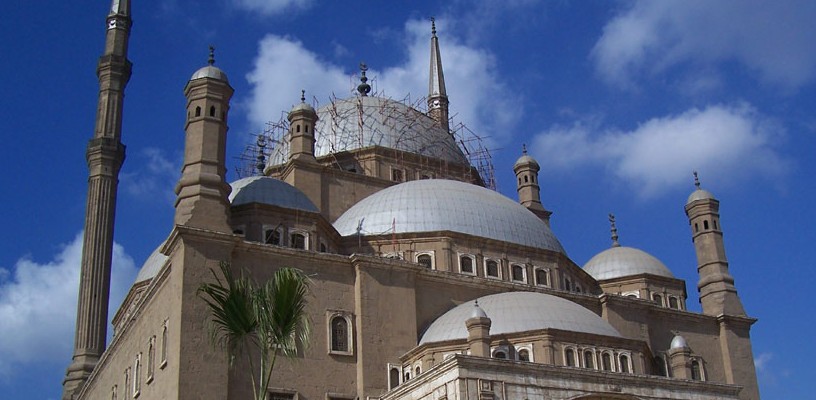Egypt’s state religious authorities have said only licensed preachers will be allowed to give sermons marking the Eid Al Adha, a step aimed at preventing opposition Islamists from using the occasion to rally support.
The Ministry of Waqfs (religious endowments) has vowed to stop any bid to deliver “politicised” sermons or distribute political leaflets in prayer areas on the first day of the Eid, which starts on Tuesday.
Around 6,520 preachers from the ministry and Al Azhar, Egypt’s prestigious Sunni seat of learning, will be assigned in the predominantly Muslim country’s mosques to deliver the Eid sermons, the Ministry of Waqfs added in a statement.
“We will not be tolerant with any Imam who allows another to appear in his place on the pulpit,” said Ahmad Turk, who is in charge of mosque affairs at the ministry.
“According to the law, delivering a mosque sermon without a licence or a written official permit is punishable by up to three years in prison,” he was quoted as saying in the local media on Monday.
The measures were made public after an Islamic coalition led by the Muslim Brotherhood has called on its followers to congregate in major squares for the Eid prayer and sermons, raising fears that the Islamists will attempt to stage large sit-ins against the military-backed government.
“We will perform prayers in all prayer areas across the country,” said the National Alliance for Legitimacy Support. The coalition has been organising street protests since the army’s July 3 overthrow of Islamist president Mohammad Mursi of the Brotherhood.
“Let the Eid prayer be said in the length and breadth of the country without discrimination or monopoly. We are one people living on the same land and worshipping one Almighty God in spite of those hating this to happen,” added the alliance.
The military-backed authorities accuse the Brotherhood of aiming at causing chaos in the country. Pro-Mursi Islamists, meanwhile, insist that their demonstrations are peaceful and have vowed to persist protesting until the Islamist leader is reinstated.
Security forces have beefed up their presence in key squares, mainly Tahrir Square in central Cairo where Eid prayers are usually held.
The plaza has soared to global fame since thousands of protesters gathered there in a 2011 revolt that forced Mursi’s predecessor, Hosni Mubarak, to step down.
The Brotherhood’s followers have repeatedly vowed to march on the iconic square. Last week, 57 people were killed, mostly in Cairo, when police clashed with anti-military protesters seeking to force their way into Tahrir.
The Interior Ministry, who is responsible for security forces in Egypt, has said it will “not tolerate any attempt to disrupt Egyptians’ Eid joy,” in a veiled reference to Mursi loyalists’ plan to hold massive anti-military rallies during the four-day festival.

